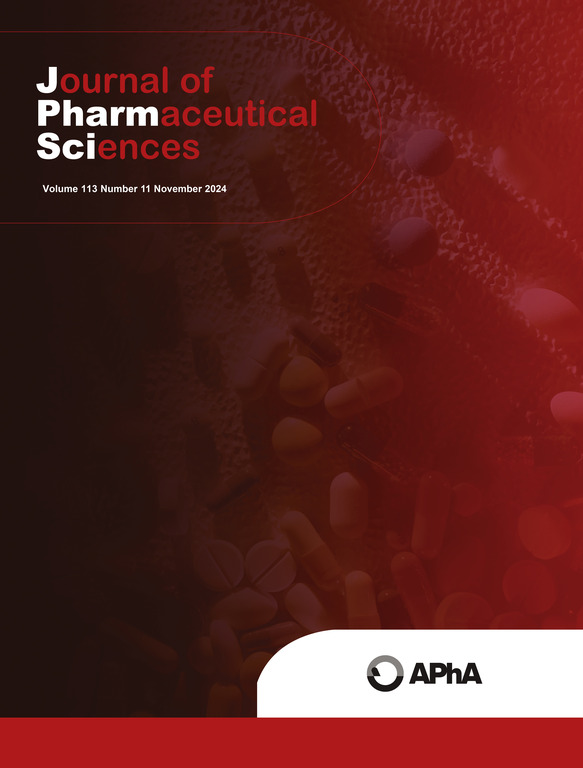载奥沙利铂的自然杀伤细胞衍生外泌体用于安全有效的结直肠癌化学免疫治疗。
IF 3.7
3区 医学
Q2 CHEMISTRY, MEDICINAL
引用次数: 0
摘要
近年来,奥沙利铂(L-OHP)有限的生物相容性和严重的副作用限制了其临床应用。外泌体是具有双膜结构的生物活性囊泡,几乎所有活细胞都有分泌。它们将用于细胞间调节和通讯的生物分子(如细胞因子、蛋白质、神经递质和脂质)运输到靶细胞。外泌体由于其优异的生物相容性、高渗透性和低毒性等特性,作为一种药物传递平台受到广泛关注和重视。在这项研究中,我们证明了通过密度梯度离心从NK细胞培养物中成功分离出碟状自然杀伤细胞外泌体(NK-外泌体,NK- exos)。利用超声技术成功制备了L-OHP-Exos纳米给药系统。这种基于外泌体的纳米药物输送系统有效地将化疗药物输送到肿瘤细胞中,抑制肿瘤细胞的生长。此外,它通过其Fas配体(FasL)和奥沙利铂的协同作用,增强肿瘤细胞内活性氧(ROS)的生成,从而诱导细胞凋亡。经过一系列严格的体内实验验证,我们进一步证实了NK-Exos的双重益处:它们对肿瘤的固有生长抑制作用,以及它们在结直肠癌治疗中显著增强L-OHP抗肿瘤活性的能力。由于奥沙利铂在磷脂双分子层中的溶解度有限,将奥沙利铂包封在L-OHP-Exos中可以最大限度地减少静脉给药后与血浆蛋白的结合,从而增加药物的缓释和生物利用度。这种纳米给药系统为结直肠癌的治疗提供了一种新的途径,具有广阔的临床应用前景。本文章由计算机程序翻译,如有差异,请以英文原文为准。
Oxaliplatin-loaded natural killer cell-derived exosomes for a safe and efficient chemoimmunotherapy of colorectal cancer
In recent years, the limited biocompatibility and serious side effects of oxaliplatin (L-OHP) have restricted its clinical application. Exosomes are biologically active vesicles with a double membrane structure secreted by almost all living cells. They transport biomolecules (e.g., cytokines, proteins, neurotransmitters, and lipids) used for inter-cellular regulation and communication to target cells. Because of their excellent bio-compatibility, highly permeable and low-toxicity properties, exosomes are receiving widespread attention and importance as a drug delivery platform. In this study, we demonstrated the successful isolation of saucer-like Natural Killer cell exosomes (NK-Exosomes, NK-Exos) from NK cell cultures by density gradient centrifugation. The nano-drug delivery system (L-OHP-Exos) was successfully prepared using sonication. This nanomedicine delivery system based on exosomes effectively delivers chemotherapy drugs into tumor cells, inhibiting their growth. Moreover, it enhances the generation of reactive oxygen species (ROS) within tumor cells through the synergistic action of its Fas ligand (FasL) and oxaliplatin, subsequently inducing apoptosis. Following a series of rigorous in vivo experimental validations, we further confirmed the dual benefits of NK-Exos: their inherent growth inhibitory effects on tumors and their ability to markedly potentiate the antineoplastic activity of L-OHP in colorectal cancer therapy. Due to the limited solubility of oxaliplatin in phospholipid bilayers, encapsulation of oxaliplatin within L-OHP-Exos minimizes its binding to plasma proteins post-intravenous administration, thereby augmenting the sustained release and bioavailability of the drug. This nano-drug delivery system offers a novel approach for the treatment of colorectal cancer and holds promising potential for clinical application.
求助全文
通过发布文献求助,成功后即可免费获取论文全文。
去求助
来源期刊
CiteScore
7.30
自引率
13.20%
发文量
367
审稿时长
33 days
期刊介绍:
The Journal of Pharmaceutical Sciences will publish original research papers, original research notes, invited topical reviews (including Minireviews), and editorial commentary and news. The area of focus shall be concepts in basic pharmaceutical science and such topics as chemical processing of pharmaceuticals, including crystallization, lyophilization, chemical stability of drugs, pharmacokinetics, biopharmaceutics, pharmacodynamics, pro-drug developments, metabolic disposition of bioactive agents, dosage form design, protein-peptide chemistry and biotechnology specifically as these relate to pharmaceutical technology, and targeted drug delivery.

 求助内容:
求助内容: 应助结果提醒方式:
应助结果提醒方式:


